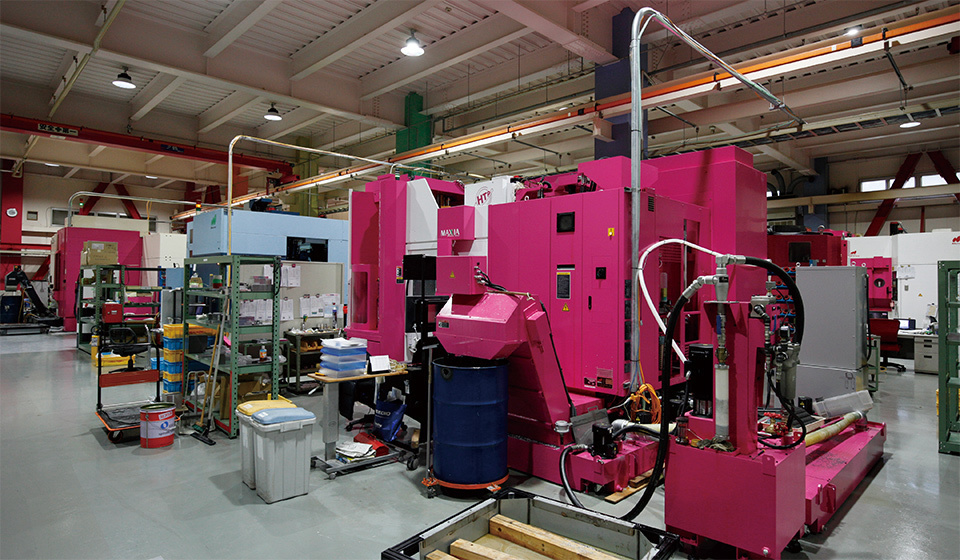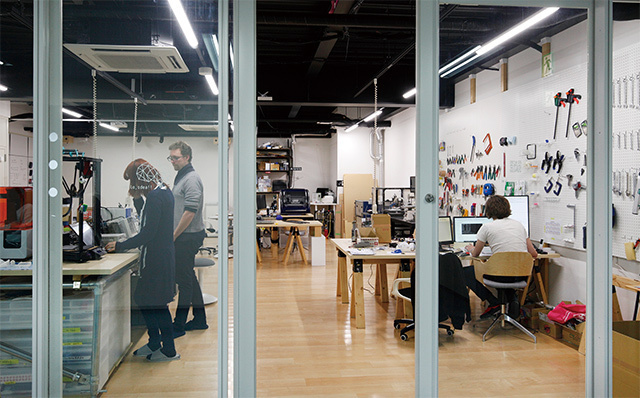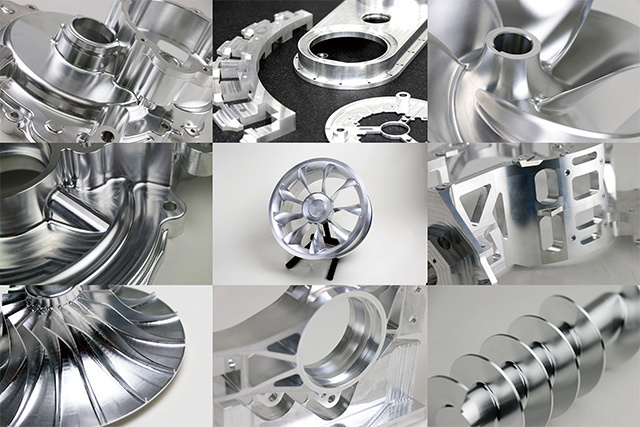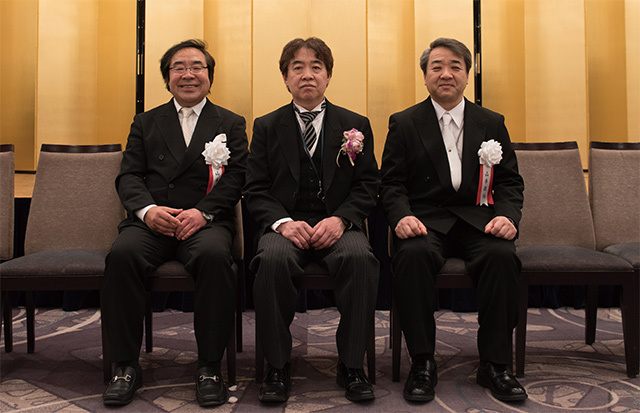Typically, when we think of automated machine tools, we imagine the mass production of identical products, but HILLTOP Corporation, a metalworking company in Kyoto, runs a profitable, groundbreaking system to fulfill precision machining orders for small and single-item lots, such as aluminum prototypes and one-time production items. Their work is precise and relatively low-cost, yet HILLTOP can deliver products in as little as five days after a new order comes in.
What makes this possible is the HILLTOP System, the company’s proprietary production control system. The system digitalizes tasks workers had traditionally performed manually. A programmer enters commands and the system automatically implements them with the machinery. HILLTOP Executive Vice President Shosaku Yamamoto, who has been ahead of the times in his pursuit of completely mechanized manufacturing processes, created this masterpiece.
Among the engineers working in the equipment development division’s lab are French graduates of prestigious grandes écoles.
“My dad ran a small steel workshop machining auto parts,” says Yamamoto, reflecting on his past. “Workers were stuck in front of machines like in the Charlie Chaplin movie Modern Times. The workshop made a lot of parts. Every day, the same items were made in the same way.” Yamamoto inherited the factory from his father, but he believed that “human beings should use their brains to their full potential and engage in creative work.” That idea was the starting point for the HILLTOP System for manufacturing a wide variety of products in small quantities or as single units. “Employee motivation is more important than the outward appearance of efficiency. Even if we streamline with mass production and hold down costs, in the end, it won’t inspire the workers. We’re better off computerizing simple tasks and leaving them to machines.” Yamamoto, who 35 years ago reached conclusions that would find expression in today’s AI, IoT and 3-D printers, set to work on digitalizing his workers’ skills and knowledge. Although there were major setbacks along the way, Yamamoto eventually made changes to put the business on track for better efficiency. Digitalization and automation turned most of the employees into programmers. Now, it takes only a few operators to run the machines.
Prototypes cut from aluminum. Digitalizing fabrication processes allows HILLTOP to quickly adjust to customer requests and remake items.
President and CEO Masanori Yamamoto (center) and his two younger brothers—Executive Vice President Shosaku Yamamoto (left), who participated in the interview, and Senior Managing Director Shoji Yamamoto (right)—worked together to create the HILLTOP System.
Visit the head office and you’ll find rows of state-of-the-art processing machinery in the first-floor factory. However, employees are hardly anywhere to be seen. But go up to the second floor and the scene changes dramatically. Casually dressed workers sit at their computers in a spacious office decorated primarily in pink hues. The office feels like an IT venture firm, rather than a metalworking factory.
“Nothing makes me happier than the fact that we have created an environment where people are more motivated and can learn new things,” Yamamoto continues. “Freed from simple routine tasks, workers can creatively seek out optimal processing sequences and consider ways of applying technology.”
HILLTOP has become a magnet for talented engineers from Japan and abroad. The company has formed a new Research and Development Division and is devoting energy to growing a business that provides support to manufacturing firms. HILLTOP set up shop in California when it opened a factory there in 2014. The response has been tremendous, and now the company has over 600 corporate clients, among them The Walt Disney Company. Yamamoto says with enthusiasm, “I want to handle even more of the high-mix, low-volume production that’s in demand now, help develop manufacturing around the world and contribute to innovation.”




